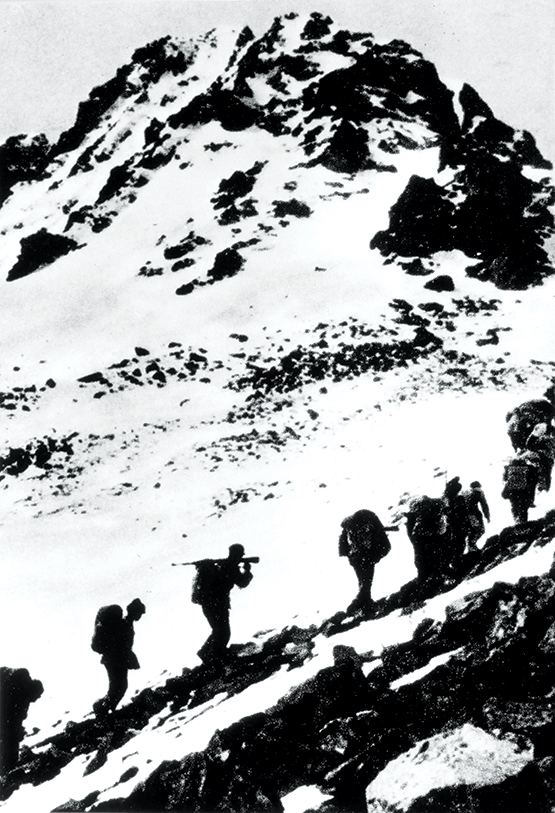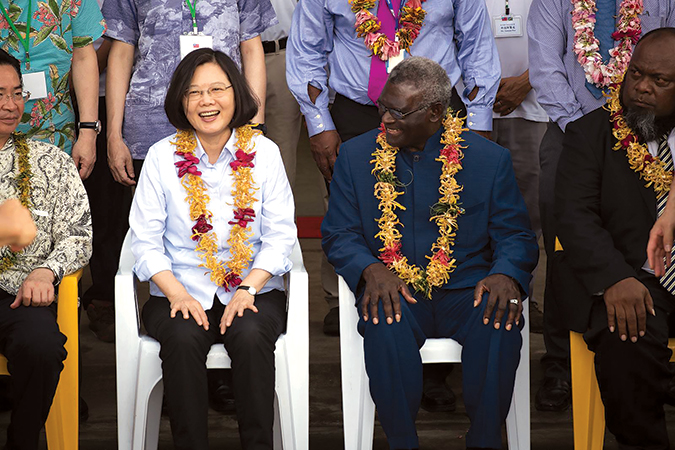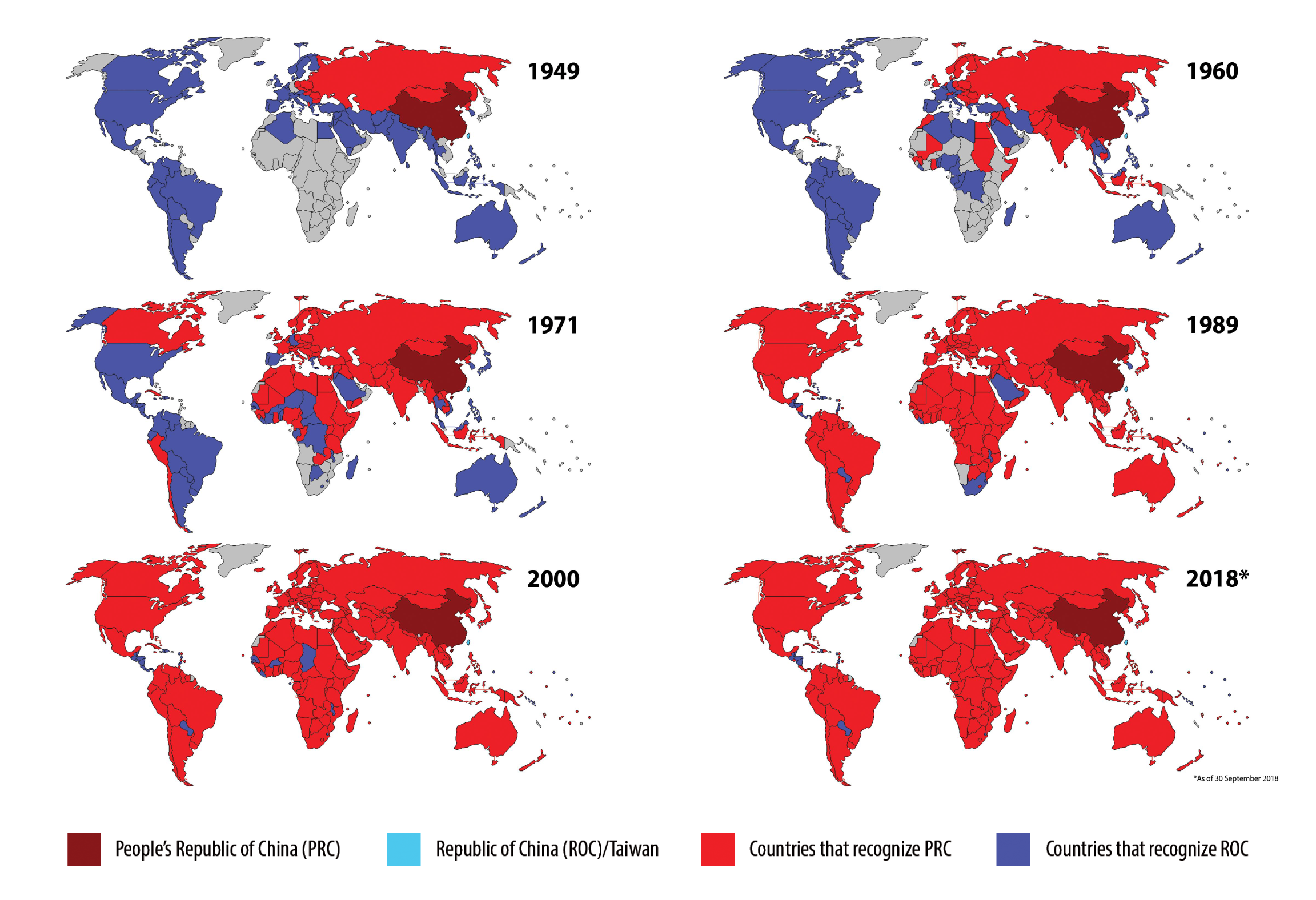
Editor’s post script: “The Long March” is a frequently invoked phrase in socialist literature that has deep metaphorical significance to the global communist movement in general and to Chinese Maoist communists specifically. The phrase literally refers to the epic journey of the Chinese Communist army, which broke through encirclement by the Nationalist Chinese Army (Kuomintang) in October 1934 and survived by escaping to hiding places in northern China under the leadership of Mao Tse-tung. The trek lasted over a year and covered more than four thousand miles. It was accomplished at the cost of great hardship and suffering, and required great forbearance to complete. Today the phrase “The Long March” is frequently invoked by the PRC as a meaning-packed symbol and supercharged mantra to stress the need for complete devotion to the cause of communism, willingness to endure extreme hardship, and—above all—indefatigable persistence and patience in single-minded pursuit of national objectives that might require decades to accomplish.
In contrast to the symbolism of the Long March, the remnants of the Republic of China’s government fled mainland Chain to the island of Taiwan in “The Great Retreat” to escape the advancing Communist People’s Liberation Army led by Mao Tse-tung. There the Kuomintang (Chinese Nationalist Party), under the leadership of Pres. Chiang Kai-shek, established what was envisioned as a temporary alternate government headquarters in anticipation of returning to mainland China to recover power from the communist Chinese.

After visiting the Marshall Islands and Tuvalu during her tour named "Sustainable Austronesia: Working Together for a Better Future—2017 State Visits to Pacific Allies," Taiwan's President Tsai Ing-wen makes her last stop at the Solomon Islands 2 November 2017 to meet with Prime Minister Manasseh Sogavare. Under pressure from communist China, the Solomon Islands broke ties with Taiwan in September 2019. (Photo courtesy of Wikimedia Commons)
Subsequently, though the dream of the Kuomintang returning to power in mainland China has gradually disappeared, the result has been that Taiwan evolved to be virtually an alternate country. Notwithstanding, recognizing that Taiwan as a separate entity that operates under a different system of governance will always pose a historical, psychological, and moral challenge to the legitimacy of communist rule in the eyes of the Chinese people broadly as long as it exists, PRC rulers have for decades prepared in many venues in anticipation of any emerging opportunity to annex Taiwan by force. In taking the long view, one of the major impediments to this quest identified by the PRC was the threat of pressure brought by world public opinion generated through the diplomatic ties Taiwan had with other nations, which might manifest itself at inconvenient times in such ways as votes against PRC aggression within the UN, pressure from adverse global media attention, and vulnerabilities produced by tenuous economic ties that could be easily severed.

Fifteen Remaining Nations with Diplomatic Ties to Taiwan
China considers Taiwan a renegade province to be reunified by force if necessary
(Figure by Agence France-Presse. Source: Taiwanese Foreign Ministry, as of 18 May 2020)
Consequently, the PRC has for decades engaged in a dual pronged simultaneous economic and diplomatic “Long March” against Taiwan aimed at entirely isolating it from diplomatic recognition and economic independence from China for the explicit purpose of ensuring that there would be little if any global political or economic costs should the PRC take military action against Taiwan. The PRC has largely accomplished both objectives of this Long March. With regard to Taiwan’s diplomatic standing in the world, the two figures provided illustrate that, where once Taiwan enjoyed diplomatic recognition and economic ties with many nations of the world, it now has formal diplomatic relations with just fifteen nations, most of which are small island countries in the eastern Pacific and the Caribbean. As a result, in the event of a conflict with the PRC, Taiwan would have little if any voice in such diplomatic forums as the UN and few diplomatic ties upon which to call for assistance. Of note, the PRC is continuing its aggressive diplomatic efforts to pressure or entice the remaining fifteen countries to cut ties with Taiwan.

The Struggle between China and Taiwan for International Recognition (Figure by Universalis, Wikimedia Commons)
No comments:
Post a Comment